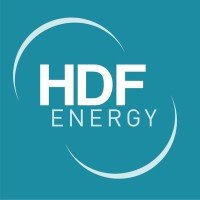Hydrogen hub between France and Belgium
Hydrogen hub between France and Belgium

GRTgaz has launched an “Open Season” from 16 June to 16 September 2022 to confirm the economic interest in setting up a transport infrastructure between Valenciennes in France and Mons in Belgium, in collaboration with Fluxys.
After carrying out France’s first national low-carbon and renewable hydrogen consultation in 2021 and 2022, GRTgaz is launching an “Open Season” to confirm the economic interest in a pipeline hydrogen transport infrastructure around Valenciennes and extending to the Belgian border. Here, the network will connect with one that Fluxys plans to develop at the same time around the city of Mons in Belgium.
The north of France seemed well-suited to the emergence of a producer and consumer ecosystem comprised mainly of industrial companies focused on low-carbon energies.
The Hydrogen Division was set up just under a year ago. Its role is to identify development opportunities throughout the whole of France. The MosaHYc project in Moselle and the HYnfraMed project in Provence-Alpes-Côte d’Azur have paved the way for our wider goals. Initially, this involves developing local hydrogen ecosystems, then interconnecting these basins to offer competitive, reliable transport solutions for hydrogen consumers and producers. This aim ties in perfectly with the European hydrogen backbone initiative led by GRTgaz, which seeks to unite all gas transport operators as part of an expected 40,000 km network by 2040.
The project in collaboration with Fluxys shows the company’s strategic ambition: to establish GRTgaz’s role within large-scale interconnected networks by drawing on local expertise, being attentive to regional stakeholders’ needs, and using coordinated planning with neighbouring gas transporters.
GRTgaz’s involvement in regional planning is a product of this continual dialogue with all stakeholders, local consumers and producers, and the local authorities.
Open Seasons and their distinctive co-construction processes are a cornerstone of GRTgaz’s hydrogen development strategy. Both French and European ambitions for the hydrogen sector require an in-depth understanding of market players and stakeholders to meet the challenges posed by the energy transition and for European energy sovereignty, which the conflict in Ukraine has exacerbated. Future local consultations should allow GRTgaz to develop up to 1,000 km of network by 2030 and become Europe’s leading hydrogen transport operator.
Marion Lacombe, Business Developer for Hydrogen Transport, said, “After carrying out France’s first national low-carbon and renewable hydrogen consultation in 2021 and 2022, GRTgaz is launching an “Open Season” to confirm the economic interest in a pipeline hydrogen transport infrastructure around Valenciennes and extending to the Belgian border. Here, the network will connect with one that Fluxys plans to develop at the same time around the city of Mons in Belgium.”
